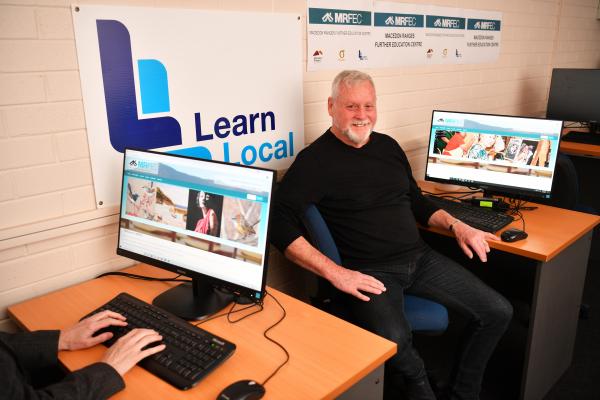
Oliver Lees
An organisation in the Macedon Ranges committed to providing life-long learning opportunities has welcomed an inquiry into the importance of adult literacy.
At a hearing held earlier this month, the federal government’s Employment, Education and Training Committee heard evidence from key organisations in the sector, with the aim of developing strategies to reduce the large number of Australians with low language, literacy, numeracy and digital literacy skills.
The most recent study of adult literacy in Australia was carried out by the Organisation for Economic Co-operation and Development (OECD) in 2012, which found that one in five Australians have low literacy and/or numeracy skills.
Macedon Ranges Further Education Centre (MRFEC) manager Monica Smyrek said her organisation provides a range of courses to first and second language English speakers to improve their basic literacy skills.
“It’s long been recognised that here in Australia we have people who have low levels of literacy and numeracy skills and that this has impacts into adult life,” Ms Smyrek said.
“At MRFEC we are always seeking ways in which we can understand and support our community needs. We seek to improve people’s confidence and also offer courses that help with everyday challenges such as developing skills in digital literacy.”
Australian Council for Adult Literacy (ACAL) president Jo Medlin was among the submitters at the hearing.
Ms Medlin told Star Weekly the ACAL was calling on the government to develop an interdepartmental adult literacy and numeracy policy.
“There is nothing to be ashamed about when suddenly you come up against something that is challenging – perhaps the only shame is that as a country we are not doing a very good job in providing a level playing field for people to access help when they need it,” Ms Medlin said.
“Access is a huge issue (in regional areas)… We know this because each year the Reading Writing Hotline has hundreds of calls from people seeking help.”
Ms Medlin said it’s also important for everyday Australians to reduce the stigma associated with literacy issues to empower people to seek help.
If you need assistance, contact the Reading Writing Hotline: 1300 6 555 06






